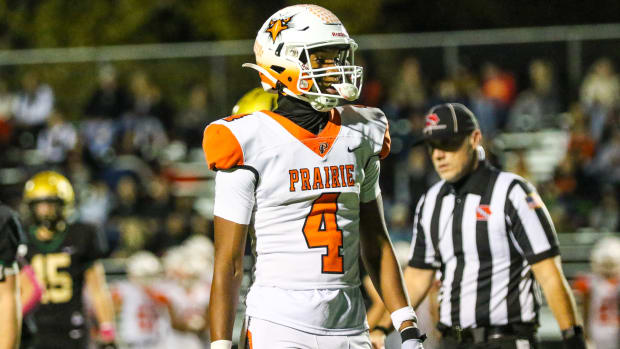Plans For College Football Season Take On Different Scenarios
Anything is possible when it comes to the upcoming college football season, and Iowa coach Kirk Ferentz knows that.
Ferentz talked on Wednesday about any numbers of scenarios for what could happen as the nation battles with the spread of the COVID-19 coronavirus.
There could be the normal 12-game season, but campuses would have to be open in the fall. There could be a shortened season. There could be a winter season from February-May, but how much time would be given to prepare for the next season that would start with conditioning in July?
At this point, Ferentz doesn't think much about scenarios.
"It's a really complex equation," he said. "Before you start burning too many brain cells on that, let's just kind of let things play out a little bit longer here and see where it all goes."
The Hawkeyes did not get any spring workouts in before all organized team activities in the Big Ten were shut down. Almost all of the players are no longer in Iowa City, since the campus is closed. Iowa's football facility is closed except the weight room, and players need an appointment to get in there.
If there would be a normal college football schedule — Iowa opens the season on Sept. 5 at Kinnick Stadium against Northern Iowa — Ferentz estimated it would take eight weeks to get players ready. The first four weeks would be for conditioning, and the next four would be for practices.
Ferentz said the preparation time could be reduced to six weeks, with four weeks of conditioning with team meetings thrown in, and two weeks of practice.
"You know, if it's six weeks, we'll make that work," he said. "But those are the things, again, we just don't know, don't have any answers."
Another scenario is a 12-game season that starts later, with games through Christmas.
And then there was one floated by ESPN's Chris Fowler earlier this week that suggested a season could be played from February to May. Such a scenario would mean a college football team could play at least 24 games in a calendar year.
"My guess is, you probably could (do that), but let's say if you did that, let's say that's the scenario that's in front of you, (it) would dramatically alter what happens between the two (seasons) and, yeah, I don't know how hard you could train or how hard you could practice," Ferentz said. "All those things are going to be on the board to be discussed and, you know, that's probably the most radical concept that would be out there, but it's for sure a possibility, I would imagine."
Ferentz knows no matter the scenario, preparing for a college football season with concerns of the coronavirus will be challenging.
"I think the overriding theme is no matter what happens, chances are it's not going to be our typical mode," he said. "You know even if they came out and said, hey, we're back to normal on May 15, because of what happened already, it's going to be very, very different."




